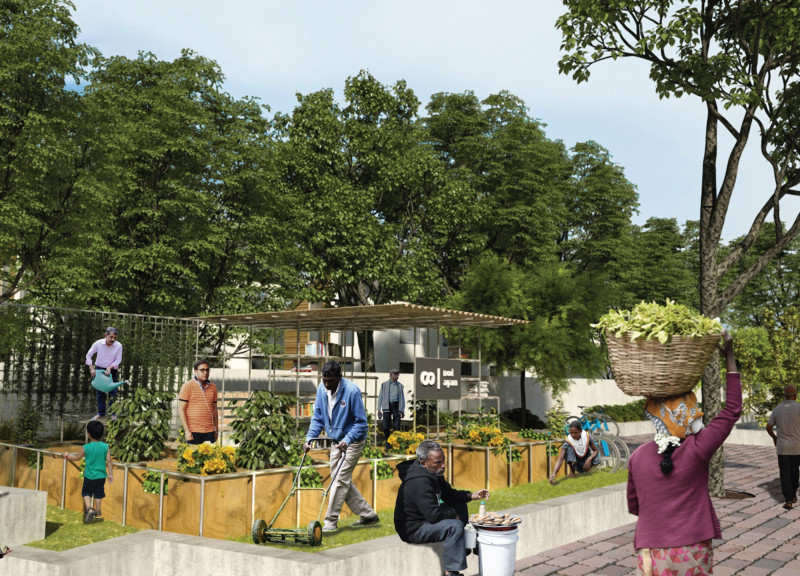5 key facts about this project
Key elements of the Noolagam project include its distinctive infinity loop concept, which serves to symbolize the continuous exchange of knowledge and resources. This design integrates various functional areas, including dedicated reading zones, interactive spaces for community engagement, and gardens designed for both enjoyment and education. The seamless flow throughout the structure encourages users to explore and participate actively in learning and sharing.
Sustainable materiality enhances the project's overall function; the design employs galvanized iron pipes for its structural framework, ensuring durability and resistance to corrosion. Recycled chipboard, identified as ECOLINK, is notable for its environmentally friendly properties, being crafted from factory waste. Reclaimed wood contributes warmth while supporting an eco-conscious aesthetic, and natural elements are thoughtfully incorporated to optimize light and ventilation while maintaining acoustic comfort.
Innovative features distinguish Noolagam from other library projects. The incorporation of an "Edible Garden" not only promotes sustainable practices but serves educational purposes, allowing visitors to learn about local flora and gardening. The project transcends traditional library functions by integrating social and recreational spaces that encourage community engagement.
The design's adaptability is another noteworthy aspect; it allows for flexible usage as community needs evolve. This responsive approach ensures the project remains relevant and valuable over time.
To gain a comprehensive understanding of the Noolagam project, interested readers are encouraged to explore its architectural plans, sections, and design details. Delving deeper into the architectural ideas behind this project will reveal the thoughtful considerations that have shaped its development and functionality.


























